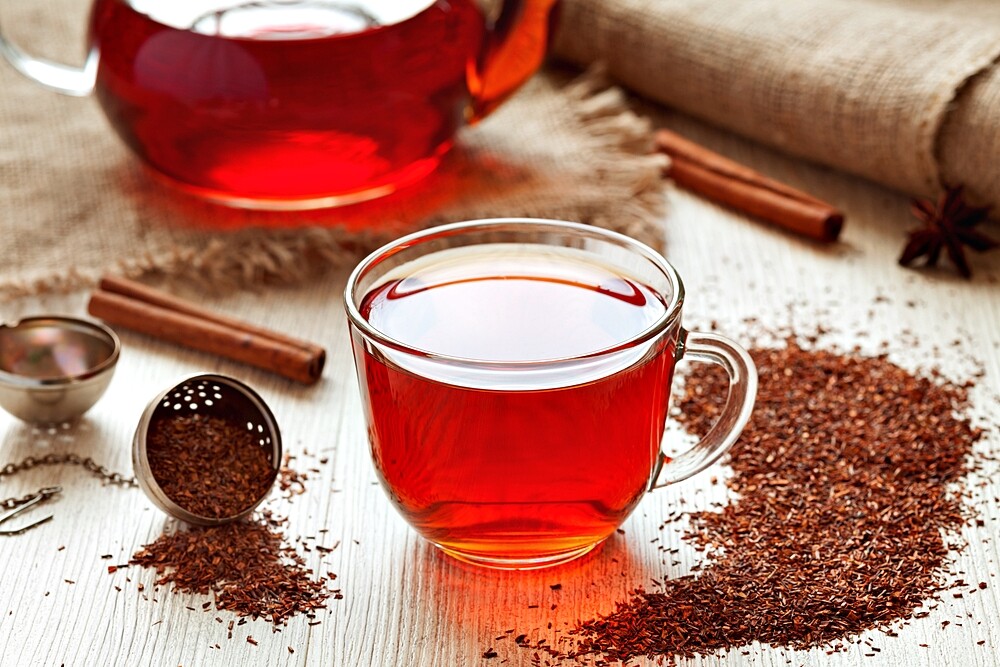The tea with the special name – Rooibos tea not only sounds fascinating, but also convinces in aroma. You can find out everything about this tea variety here.
Rooibos Tea: Background
- Rooibos tea (also called rooibos tea) is not only very popular with us. The tea is considered the national drink of South Africa. The rooibos bush grows exclusively there in the mountain regions.
- The tea captivates by its red colouring and an aroma that is somewhere between sweet and fruity. These characteristics are due to the fermentation of the leaves.
- The shrub falls under the genus of the papilionaceous plants. Rooibos has been consumed in South Africa since the 18th century. However, the tea did not become widespread until the 20th century, when the tea trade and marketing of the variety began.
Rooibos Tea: Ingredients
Rooibos tea has the reputation of containing many minerals. This is true, because calcium, magnesium and co. are all present in tea. However, the amounts are very small, so they are unlikely to have any effect on health. In contrast to green or black tea, rooibos tea does not contain caffeine. So if you prefer a decaffeinated version or want to sleep better in the evening, you can switch to Rooibos tea.
- Iron
- Sodium
- Potassium
- Calcium
- Magnesium
- Flavonoids
- Rutin
- No caffeine
The Effect of Rooibos Tea
- The first thing to do is to dispel a few myths. As already mentioned, tea does not contain any caffeine and is therefore also suitable for consumption in the evening. However, it does not have any additional sleep-inducing effect
- Due to its flavonoids, rooibos tea contains certain antioxidants that ward off free radicals and thus strengthen our immune system. However, the extent to which these antioxidants are absorbed and used by our body cannot be clearly proven. As a result, the reduction of the cancer risk that tea often claims to reduce is not confirmed.
- Overall, it can be stated that there is hardly any clearly demonstrable health effect of Rooibos tea. Often titled descriptions like anti-inflammatory, digestive or antibacterial cannot be generalized. So if you drink your tea exclusively for health reasons, you should rather look for another variety, such as green tea.
Disadvantages of Rooibos Tea
- Significant side effects are not to be expected from the tea itself. To avoid products that have been treated with pesticides, it is best to always use organic products or go to a tea merchant and ask specifically about the ingredients.
- Rooibos tea is very often offered in combination with vanilla, cherry, caramel or other additives. These are usually mixed with a good amount of sugar. This causes the tea to lose its positive effects and can lead to ravenous appetite.
- Problematic: Carcinogenic substances have been found in some Roiboos teas. However, these did not come from the Roiboos itself, but from herbs that grow next to the plant and were harvested with it. Therefore, once again, the advice: go for tea that is certified organic.
- Another problem – the ecological balance in production. Since the tea comes from South Africa, it always travels a long way before you can buy it here in the shop. In addition, there are often morally questionable working conditions on the plantations. Even green or black tea is not exempt from this. Go for Fairtrade products to at least improve the conditions.

